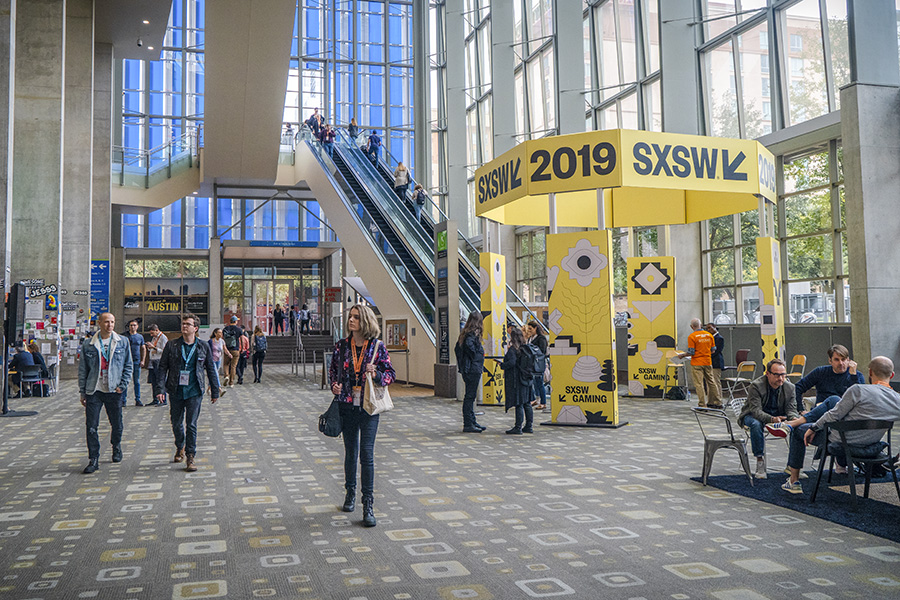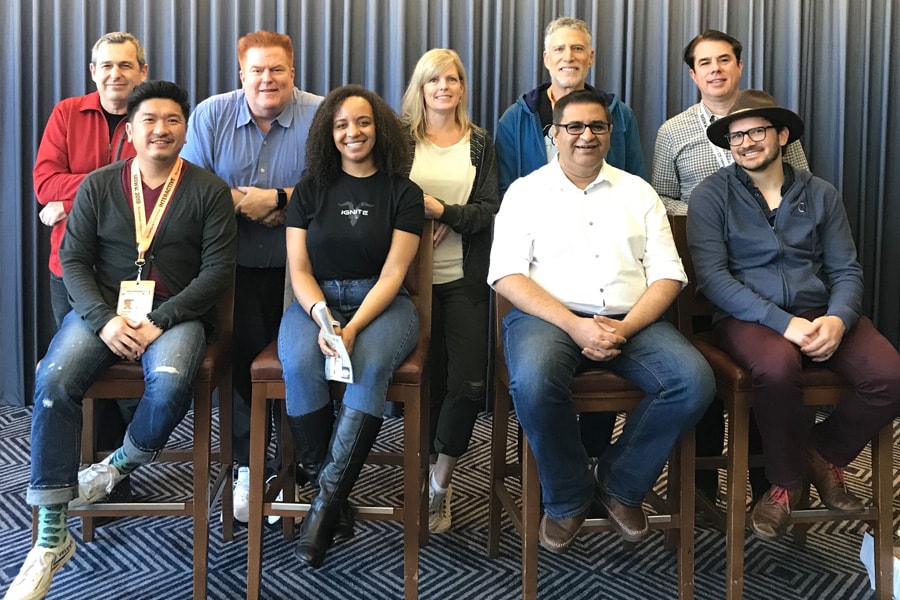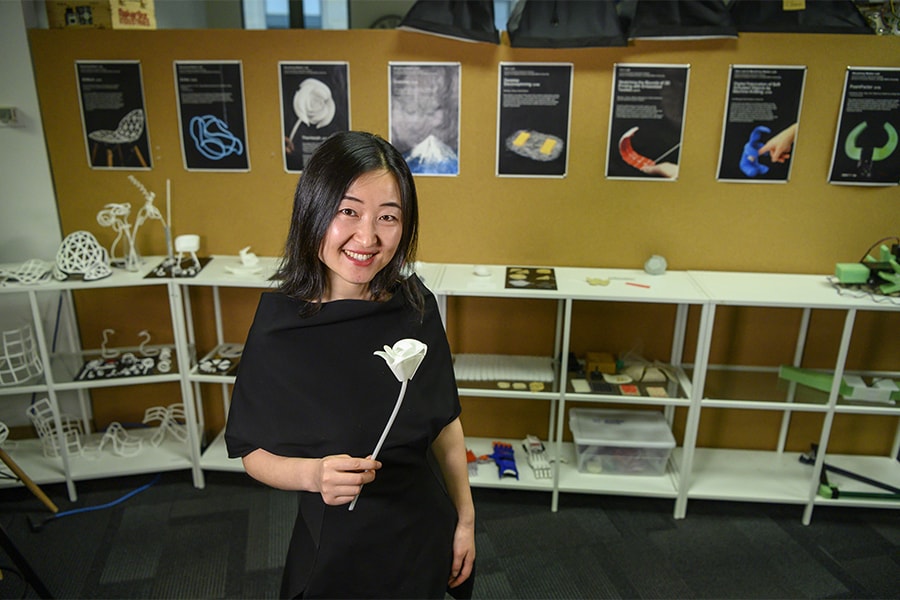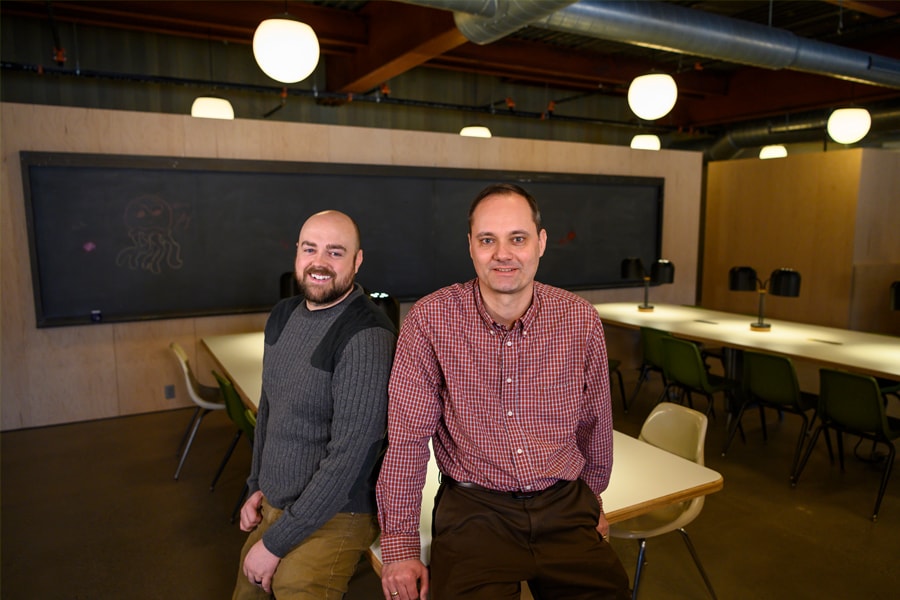Zimmerman To Speak on Accessible Transportation Panel at SXSW
Millions of people use John Zimmerman's design daily without ever realizing. While working at Philips on a TV show recommender, Zimmerman helped invent a new to scroll information on a touch screen; stroking a finger to start a scroll that then decelerates. This method is in use on nearly every smart phone and tablet today.
Zimmerman brings his expertise in designing with artificial intelligence products and services along with and his boundless determination to understand the consequences of the emerging technologies of the future to a panel entitled, "Accessible Transportation for All," from 2 p.m. to 3 p.m. on March 12, at this year's SXSW conference. He joins Bonnie Epstein, senior planner for the Pinellas Suncoast Transit Authority; Kate Hartman, chief-Research, Evaluation, and Program Management in the ITS Joint Program Office at the U.S. Department of Transportation; and Maria Town, of the Mayor's office for People with Disabilities in Houston.
"It's more interesting to think about where we're going than to complain about where we are," Zimmerman said. "I like the proactivity of it. Instead of wallowing in what's bothering you, try to articulate what you want next."
Zimmerman first came to Carnegie Mellon as an undergraduate student to study history. After graduating in 1988, he started off his career working in film, and helped finance that career by working in CMU's computer store.
"Film is about telling stories about people that where you're not bound to reality," said Zimmerman, who also earned his master's in interaction design from CMU's School of Design. "What I do now is construct stories about people who will work with technologies that don't yet exist. It's not actually that different."
John Zimmerman brings his expertise in designing artificial intelligence products and services along with his boundless determination to understand the consequences of emerging technologies to a panel titled, “Accessible Transportation for All,” from 2 to 3 p.m., March 12, at this year’s SXSW conference.
"One of my inspirations is parents who read books to their children," Zimmerman said. "You can visit those parents years later. And they still keep an cherish specific books. If they read to their same children on a kindle, years later, they would not keep and cherish the kindle. As a maker of digital things, I'm really interested in how value accrues differently for digital things."
It's those ideas about value that led Zimmerman to design things like a futuristic bedroom with 12 large screen displays. "Kids that were my age had physical music collections and physical book collections," Zimmerman said. "Kids today have lost a lot of that materiality."
The room reacts as a teenager comes in, displaying their digital possessions on the screens. When a friend enters, it can display commonalities. Or an entirely different set of images can turn on when a parent enters the room.
Zimmerman also was interested in whether a public transit app could increase citizens’ participation with their transit service if the app users collectively co-created the underlying service. He pioneered Tiramisu, a transit app for the City of Pittsburgh, before real-time data on bus arrivals was available in Pittsburgh. Users were able to share their phone's location traces while riding city buses and trains, which generated arrival-time data that was shared with other users.
Whether it's using AI to help reduce fatalities in heart surgery, or creating a system that helps parents to remember to pick-up their children, Zimmerman's designs aim to bridge the present with the possibilities of the future.
"Designers have a strength in envisioning things that don't exist," Zimmerman said. "But until they can grasp the materiality and have a conversation with the materiality of AI, it's very hard for them to envision what could be. The work that we've been doing is trying to figure out how do we span the gap between designers and AI."
He's excited for SXSW both for his panel experience, and as a chance to interact with practitioners who might help influence his questions as a researcher.
"At SXSW I'll be speaking on a panel about transit and accessibility. And this is an exciting area. There's a lot of work taking place to improve access to transit for people with disabilities and technology is making it more and more possible."
Carnegie Mellon University is committed to educating, empowering and aligning its community around the world to address the Sustainable Development Goals, also known as the Global Goals, which aim to create a more peaceful, prosperous planet with just and inclusive societies. Recognizing the critical contributions that universities are making through education, research and practice, CMU publicly committed to undertaking a Voluntary University Review of the Global Goals. The 17 Global Goals cover wide-ranging issues, including reducing violence, ending extreme poverty, promoting equitable education, fighting inequality and injustice, advancing economic growth and decent work, and preventing the harmful effects of climate change by 2030.
The preceding story demonstrates CMU's work toward attaining Global Goal 10.



